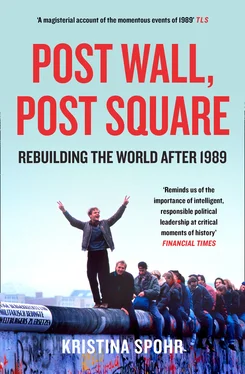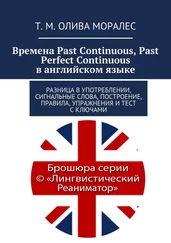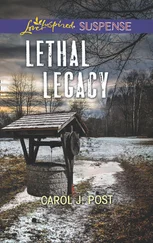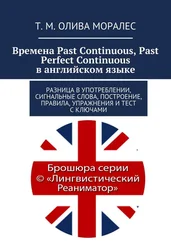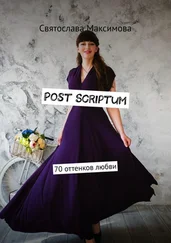*
As soon as he got back to Bonn, Kohl started planning the details of his meeting with Hans Modrow in Dresden, which was scheduled for 19 December. But no West German chancellor could take anything for granted. That seemed to be the lesson of forty years of history – with the FRG always beholden to the occupying powers, always bearing the burden of the Hitler era, always edgy about its lack of sovereignty.
One worry was the French announcement on 22 November that Mitterrand would visit the GDR on 20 December. Why now? Ostensibly his trip was simply to reciprocate Honecker’s visit to Paris in January 1988 but Kohl was aggrieved that he – the most interested party – was being upstaged. At a deeper level, he felt that the French president was being two-faced – professing support for Kohl and the drive for unity yet apparently cultivating a failing state for France’s own benefit. Moreover, on 6 December Mitterrand had met Gorbachev in Kiev to talk over Germany and Eastern Europe. Getting to the GDR ahead of Mitterrand was therefore the main reason for fixing the Kohl–Modrow meeting for the day before.[140]
On 8 December, there was another bombshell. Kohl learned that the ambassadors of the Four Powers were going to meet in Berlin to discuss the current situation. And not merely in Berlin but in the Allied Kommandatura – notorious to Germans as the centre of the occupation regime of the 1940s and a venue not used since 1971 when the Quadripartite Agreement on access to the city had been signed. The Soviets, apparently taking advantage of the EC summit, called for the discussion to be held on 11 December, just three days later. Asked if Bonn would be displeased about the meeting, a senior French official retorted: ‘That is the point of holding it.’ The Kohl government was indeed furious; its anger subsided only when the Americans promised to make sure that the agenda was limited to Berlin rather than straddling the German question as a whole. On the day itself, robust diplomacy by the Americans was required to kill off this rather crude Russian ploy to give the Four Powers a formalised role in deciding the German question.[141]
Coming just a few days after Gorbachev’s explosion to Genscher, the Soviet powerplay at the Kommandatura persuaded the chancellor that he had to make a determined effort to explain his Ten Points to Gorbachev and disarm Soviet criticism. He instructed Teltschik to draft a personal letter to the Soviet leader, eventually running to eleven typescript pages laying out a very carefully constructed argument.
In it Kohl explained that his motivation for the Ten Points had been to stop reacting and running after events, and instead to begin shaping future policies. But he also insisted that his speech was couched, and must be understood, within the wider international context. He referred specifically to the ‘parallel and mutually reinforcing’ process of East–West rapprochement as evidenced at Malta, closer EC integration as agreed in Strasbourg, and the likely shifts of the existing military alliances into more political forms and what he hoped would be the evolution of the CSCE process via a follow-up conference (Helsinki II). In these various processes, the chancellor emphasised, his pathway to unity would be embedded. He added that there was no ‘strict timetable’, nor had he set out any preconditions – as Gorbachev wrongly alleged. Rather the speech gave the GDR options and presented a gradual, step-by-step approach that offered a way to weave together a multitude of political processes. Kohl then summarised the ten points in detail before stating at the end of the letter that he sought to overcome the division of both Germany and Europe ‘organically’. There was no reason, he insisted, for Gorbachev to fear any German attempts at ‘going it alone’ ( Alleingänge ) or ‘special paths’ ( Sonderwege ), nor any ‘backward-looking nationalism’. In sum, declared Kohl, ‘the future of all Germans is Europe’. He argued that they were now at a ‘historical turning point for Europe and the whole world in which political leaders would be tested as to whether and how they had cooperatively addressed the problems’. In this spirit, he proposed that the two of them should discuss the situation face-to-face, and offered to meet Gorbachev wherever he wanted.[142]
This weighty letter, however, appeared to have no effect. On 18 December, the evening before his visit to Dresden, the chancellor received a letter from Gorbachev. Kohl assumed this would be a reply but Gorbachev addressed other issues.[143] In a brusque two pages the Soviet leader referred only to the Genscher visit and reiterated the USSR’s view that the Ten Points were virtually an ‘ultimatum’. Like the GDR, he said, the Soviets viewed this approach as ‘unacceptable’ and a violation of the Helsinki accords and also of agreements made in the current year. Finally, referring to his speech to the Central Committee on 9 December, Gorbachev highlighted the GDR’s Warsaw Pact membership and East Berlin’s status as a ‘strategic ally’ of the USSR, and he asserted that the Soviet Union would do anything to ‘neutralise’ all interference in East German affairs.[144]
Having heard much of this already via Genscher, Kohl was not seriously put out. What the letter seemed to show, he felt, was that Gorbachev was under the spell of Hans Modrow’s visit to Moscow on 4–5 December. Having not himself visited East Germany since the 7 October celebrations, the Soviet leader had no first-hand feeling of the situation or the popular mood. Taking his cue from Modrow – with his talk of reformed communism, continued East German independence, and a treaty community with the FRG – perhaps the Soviet leader was anxious to demonstrate his commitment to the GDR. That, at any rate, was the most positive reading of Gorbachev’s letter. A more pessimistic take was to focus on the Kremlin leadership’s rejection of the ‘tempo and finality’ of the German–German march toward unity and Gorbachev’s evident concern for ‘the geopolitical and strategic repercussions of this process for the Soviet Union itself’.[145]
The battle of the letters strengthened Kohl’s determination to exploit the window of opportunity before Christmas – to take the measure of Modrow and, at last, to immerse himself in East Germany’s revolution. Ironically, the West German chancellor had since the fall of the Wall travelled to West Berlin, Poland, France and most recently Hungary – but not to the GDR itself. This omission was finally rectified on the morning of 19 December when Kohl, Teltschik and a small entourage from the Chancellery landed in Dresden. Foreign Minister Genscher was not on board.
Kohl was a tactile politician, with keen antennae for public moods. He may have talked with passion about German unity to the Bundestag in Bonn but – as he admitted in his memoirs – it was when he encountered the cheering crowd at Dresden airport on that icy Tuesday morning that he really got the point. ‘There were thousands of people waiting amid a sea of black, red, and gold flags,’ Kohl recalled. ‘It suddenly became clear to me: this regime is finished. Unification is coming!’ As they descended the stairs onto the tarmac, there was another telltale sign: an ashen-faced Modrow gazing up at them with a ‘strained’ expression. Kohl turned round and murmured: ‘That’s it. It’s in the bag.’[146]
The leaders of the two Germanies sat next to each other in the car as they were driven at a snail’s pace into the city. They made small talk about their upbringing: Modrow, unmoving and self-conscious, went on about his working-class background and how he had risen from being a trained locksmith to completing an economics degree at the Humboldt University in Berlin. But Kohl was not really listening. His eyes were on the crowd lining the streets. He could barely believe what he saw. Nor could Teltschik, who captured the scenes in his diary: ‘whole workforces had come out of their factories – still wearing their blue overalls, women, children, entire school classes, amazingly many young people. They were clapping, waving big white cloths, laughing, thoroughly enjoying themselves. Some were simply standing there, crying. Joy, hope, expectation radiated from their faces – but also worry, uncertainty, doubt.’ In front of the Hotel Bellevue, where the formal talks were to take place, thousands more young people had congregated shouting ‘Helmut! Helmut!’ Some held banners proclaiming ‘ Keine Gewalt ’ (‘No violence’).[147]
Читать дальше
